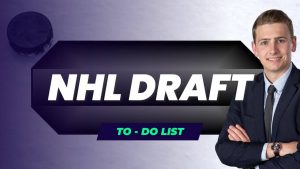[vc_row][vc_column][vc_column_text]
As the saying goes – there are only two certainties in life: death & taxes. Playing professional hockey provides numerous perks in life, however avoiding taxes is not one of them. Undoubtedly, your tax bill as a pro hockey player will be your largest expense and can create a massive discrepancy between what your contract states and what your bank account shows.
Although you can’t avoid paying taxes, some measures can be taken to ensure you aren’t paying more than is legally required. Depending on where you play, there are numerous tax-planning strategies to implement that can reduce your tax bill. Here are a few things to consider:
The Tax Treaty
The U.S and Canada have a tax treaty that indicates how workers from one country earning income in another are taxed. As many pro hockey players are Canadians playing in the U.S., or vice versa, this tax treaty comes into play for you. Understanding the various rules and limitations of the tax treaty, such as the tie-breaker rules regarding tax residency, is crucial for tax planning purposes.
Jock-Tax
U.S. resident pro hockey players are required to pay tax in the U.S. in both the state in which their team plays and any road games played in a state that levies the jock tax. When it is time to pay your taxes, depending on how many visiting states your team played in, you may be required to file several state tax-returns, and the costs to prepare your tax return will increase.
RCA Trusts (Canada only)
A retirement compensation agreement is a special trust registered with the Canada Revenue Agency. These trusts can provide a “smoothing” of your income between your playing days and retirement while also providing considerable tax savings. If you’re playing in Canada, using an RCA trust may be a viable option worth exploring.
Registered Investment Accounts
Whether you are playing in the U.S. or Canada, there are government registered accounts available, and it likely makes sense to invest in these accounts as they provide tax sheltering. You can implement various strategies while investing in these accounts that can affect both the generation and preservation of your wealth.
Summary
The tax implications for pro hockey players are highly complex. Ensure you have a qualified tax professional on your team who can file a proper return, ensure you are compliant with jurisdictional tax laws and advise you on various tax strategies to keep your tax liability under control.
Sources:
https://www.rosecrete.com/blog/tax-reform-and-its-effect-on-professional-athletes
[/vc_column_text][/vc_column][/vc_row]



